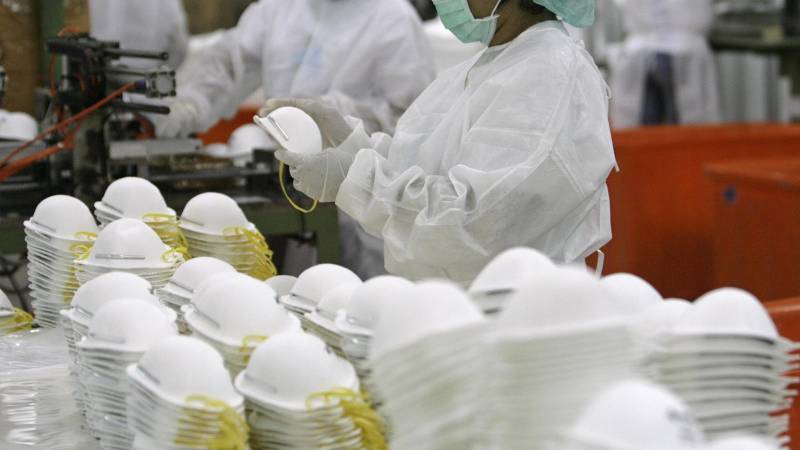US manufacturer stuck with 30m N95 masks

Stay tuned with 24 News HD Android App

A Florida manufacturer that pounced on the N95 mask shortage at the start of the pandemic and retooled to churn them out now has 30 million of the coverings going begging.
DemeTech, a factory based in Miami, blames its woes on lower prices for Chinese-made N95s. Wholesale dealers say the problem is Americans are wary of new makers of the devices. A few dozen other US manufacturers are reportedly in similar straits.
This all began early last year when China, which produced half of all the N95 masks made around the world, was accused of hoarding them amid the initial scare over the coronavirus pandemic, which began in the Chinese city of Wuhan.
In April US hospitals were running short of the masks and reported having just a three-day supply of N95s, said a poll by Premier, a company that supplies equipment to 4,100 hospitals and health care systems in America.
Google, Amazon and Facebook then banned ads for and sales of the masks on their platforms to prevent jittery people from buying up masks needed so desperately by front-line health care workers.
So DemeTech, a family-owned company that until then made suture thread, retooled its facilities to manufacture masks. Nine months and tens of millions of dollars later, DemeTech's N95s were approved by the federal government. But the company cannot find enough customers.
"There's an unfortunate disconnect between the manufacturers and the people that want to buy the product," said company vice president Luis Arguello.
China and social media
Arguello blames this disconnect on two factors. First of all, he said, hospitals that buy wholesale prefer cheaper masks from China.
A box of 20 DemeTech N95s costs $75 retail. The wholesale price is about half of that, but still more expensive than Chinese masks. "We are considerably more expensive because we use US raw materials and US labor," said Arguello.
The New York Times reported last week that nearly two dozen companies like DemeTech are struggling to sell their N95 masks despite promises by the government -- under Donald Trump at first and now Joe Biden -- to support US manufacturers.
Secondly, said Arguello, US companies cannot sell their masks at the retail level because they cannot advertise them online, due to the ban imposed by companies such as Google and Facebook.
"Most of the digital companies think that they're doing good because they want to reserve the product for the hospital sector and the doctors," he said.
"But we have an excess capacity. We have a lot of masks in inventory. Here we have around 30 million masks," said Arguello.
The N95 is considered the gold standard for protecting against the coronavirus because it filters out 95 percent of particulates in the air.
Mistrust
A year into the pandemic N95s have overcome their initial shortage, but they are still a restricted good, said David Hargraves, senior vice president of supply chain issues for Premier.
Demand for them is high -- use of these respirators is up 500 percent since July. But new manufacturers have also come onto the market and hospitals on average have a 150-day supply.
Still, he said, "we need to be careful about being too optimistic."
"Our members tell us they continue to dip into safety stocks, and any changes to current levels of supply and demand could quickly compromise this fragile market and bring us back to an acute shortage situation," said Hargraves.
So the market for N95s remains "constrained" and the online advertising ban by the big social media platforms is still in force.
Premier says it acquires masks both from US manufacturers like DemeTech and foreign ones.
But ultimately it is the hospitals themselves who decide what they buy.
Some must approve masks within their own inspection systems, and are wary of new, untested suppliers because there has been a lot of fraud that came with the pandemic.
"We're at a strange inflection point," said Arguello. "We can go one of two ways."
"We can hire an additional 3,000 new jobs and continue to make and help the economy. Or our message won't get out there and we'll have to let go a lot or all of our 1,500 mask production employees."
